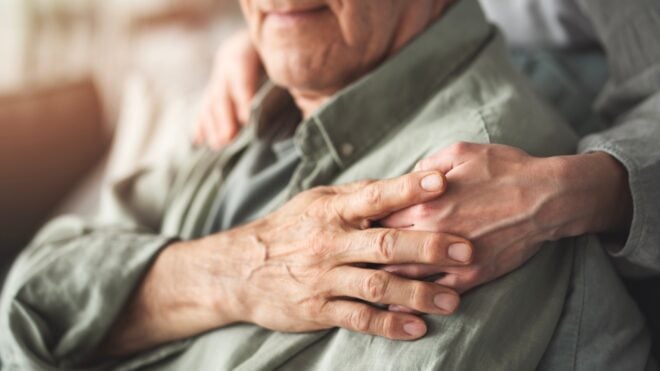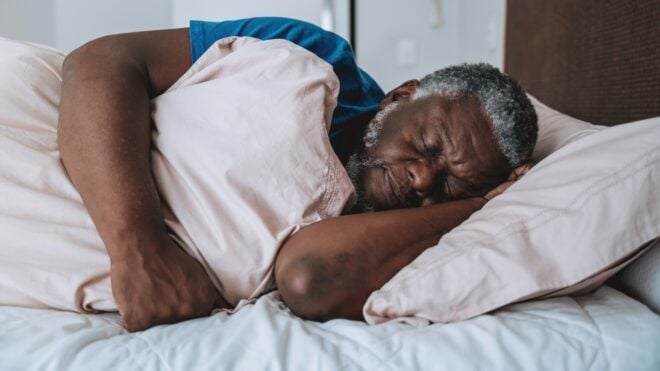Hello, my name is Emerald and I am addicted to sugar.
I don't know how it happened. I had an aversion to sweets most of my life. In fact, I preferred salty things. Then, somewhere along in my adult life I got hooked on the sweet stuff. Perhaps it was all those office birthday parties with cakes, or maybe it was adult stressors like student loans that caused me to comfort myself with chocolate. Either way, I am a sugar addict.
To kick my cravings, I decided to go on a no-sugar diet for 30 days. Cutting sugar from my diet wasn't easy, but it was worth it.
So, let's start with some facts. The World Health Organization recommends that adults and children have a daily intake of "added sugars" not surpassing 5 to 10% of their total energy intake.
That means if you're eating a 1,500 calorie a day diet, 150 of those calories can be from added sugar. That's also about 25 to 50 grams ,or 6 to 12 teaspoons of sugar overall.
According to the Washington Post, Americans aren't so great at following these guidelines. The average American consumes 126 grams of sugar per day. That's about three 12-ounce cans of soda.
I don't drink soda, but I do love my sweet treats. I am not reducing my sugar intake to lose weight, I am doing it to beat cravings, understand what I put in my body, look at the health effects of sugar, and to improve my health in the long term.
So, after 30 days without any added sugar, here's what happened…
Is Sugar Bad For You?
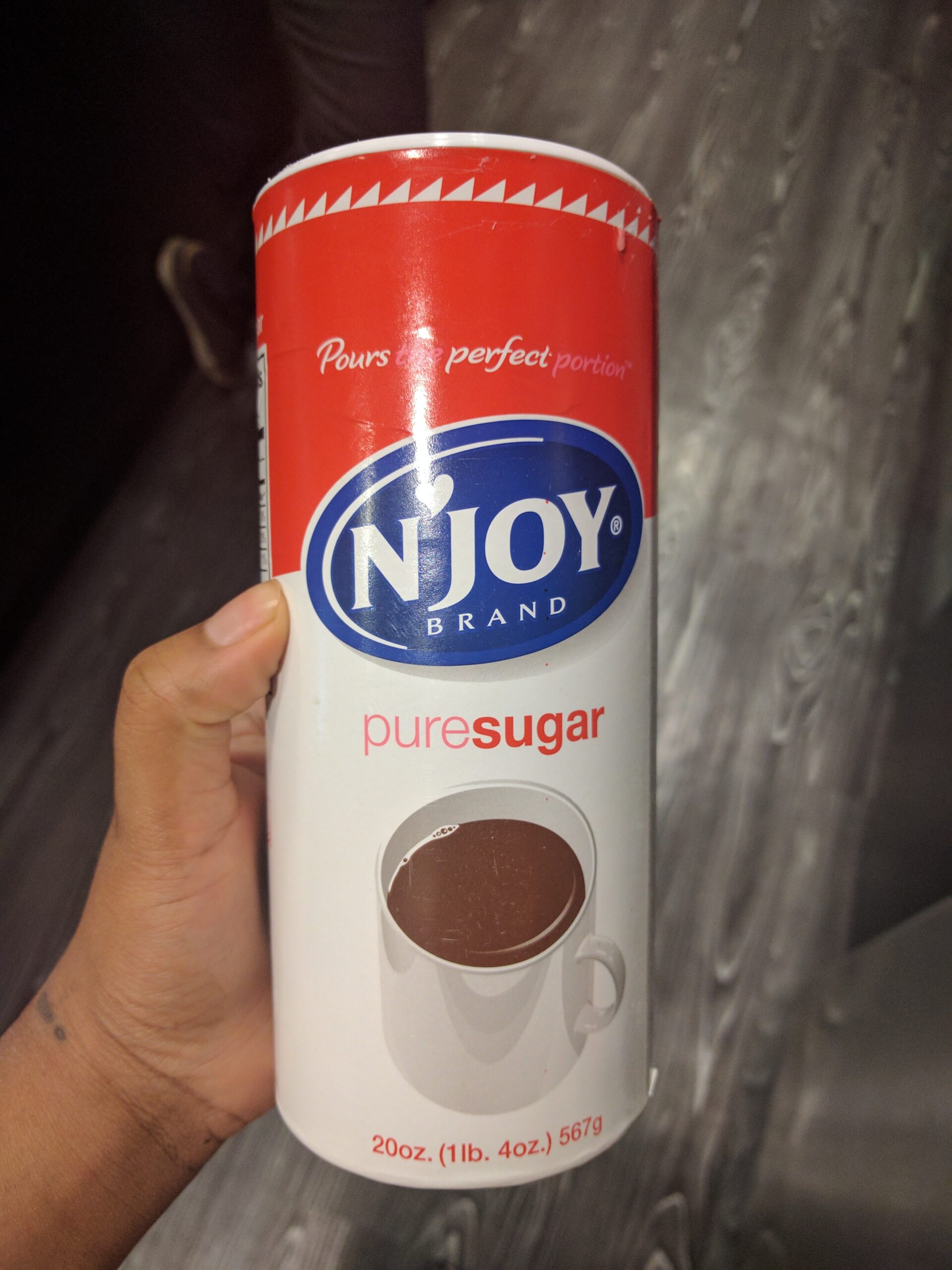
It's a complicated matter, really. According to the New York Times, sugar in moderation is fine for most people. Sugar in excess, however, (and namely fructose) will end up going straight to your liver. The liver turns fructose into droplets of fat known as triglycerides. This then creates a decrease of HDL cholesterol (the good kind). This is bad business for your cardiovascular system.
Ultimately, excess sugar can lead to an increase of fat and an increased risk of heart disease.
In fact, a 15-year study in JAMA Internal Medicine showed that adults who got more than 25 percent of their daily calories from added sugar were more than twice as likely to die of cardiovascular disease than those who included less than 10 percent.
What Happens To Your Body When You Stop Eating Sugar?
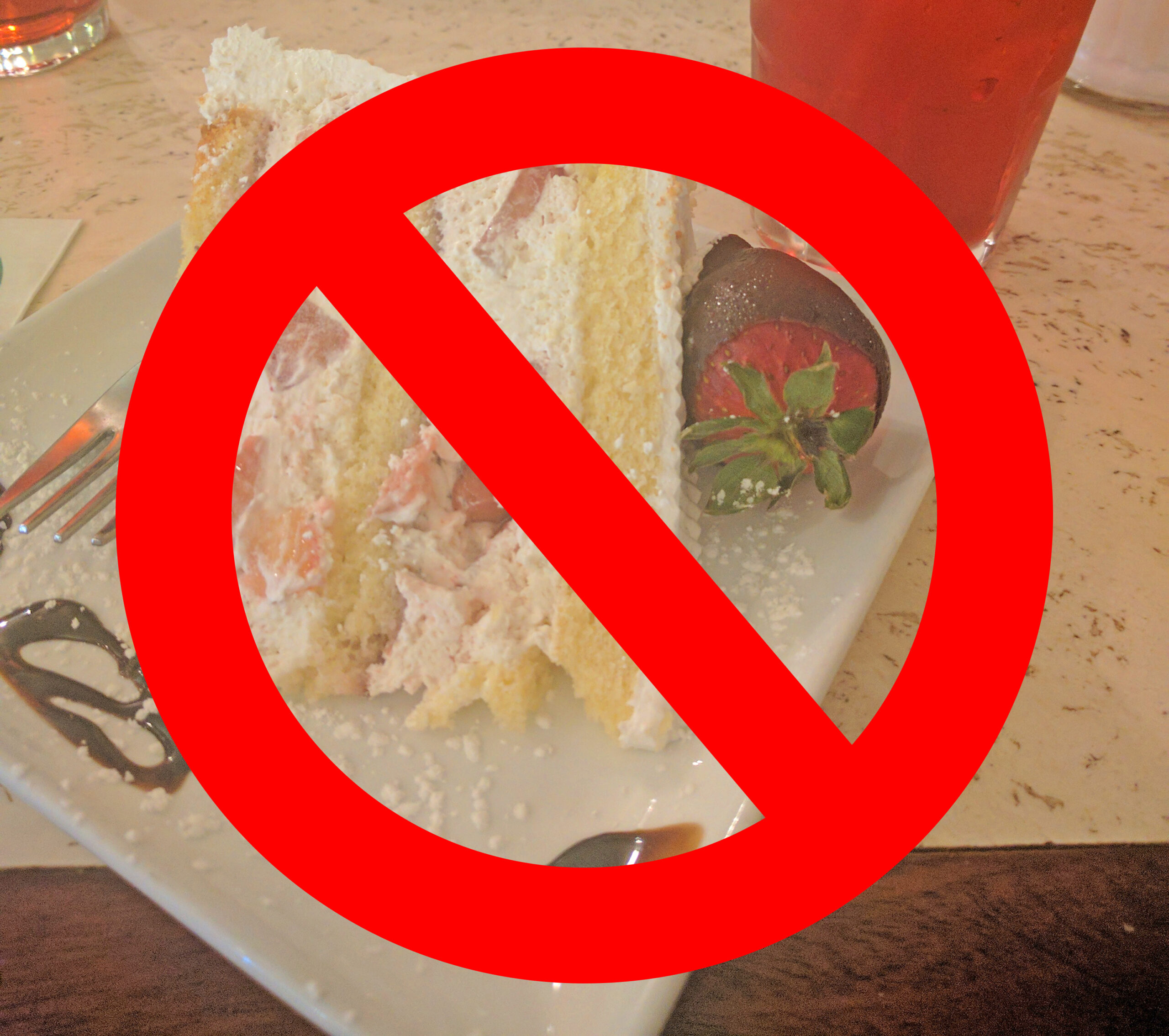
Sugar has an interesting effect on the brain. To condense a lot of neurological studies into a nutshell, CNN reported that sugar (much like nicotine, cocaine, and heroine) can "hijack" the brain's reward pathways.
Translation: our hunter and gatherer ancestors would be on the lookout for fresh fruits as nutrition. "Sweet" on our taste buds meant fruit was ripe and good for the taking. Those connections are still with us today, so when we eat something sweet, our brain loves it. It thinks we've found a rare bounty of nutrition. The only trouble is, we're no longer hunters and gatherers. We live in a modern society where sugar is overabundant and not always so great for us. Our brain can't tell the different between cake and a strawberry, so it reacts the same way. If there were an actual scarcity of resources, this wouldn't be such a big deal. If you've ever walked into the snack section at Walmart, you know this isn't the case.
Studies of lab rats show that sugar addiction is real. When rats are deprived of food for 12 hours, then given the choice of sugar or real food, they always choose to binge on the sugar.
They exhibit behaviors similar to drug abusers, and even undergo anxiety and depression in the process.
That means when you stop eating sugar, you experience detox symptoms like bingeing, withdrawal, and craving.
However, there are benefits to going cold turkey: giving up sugar can decrease fat and lower your risk of heart disease, so… yay!
No-Sugar Diet Plan
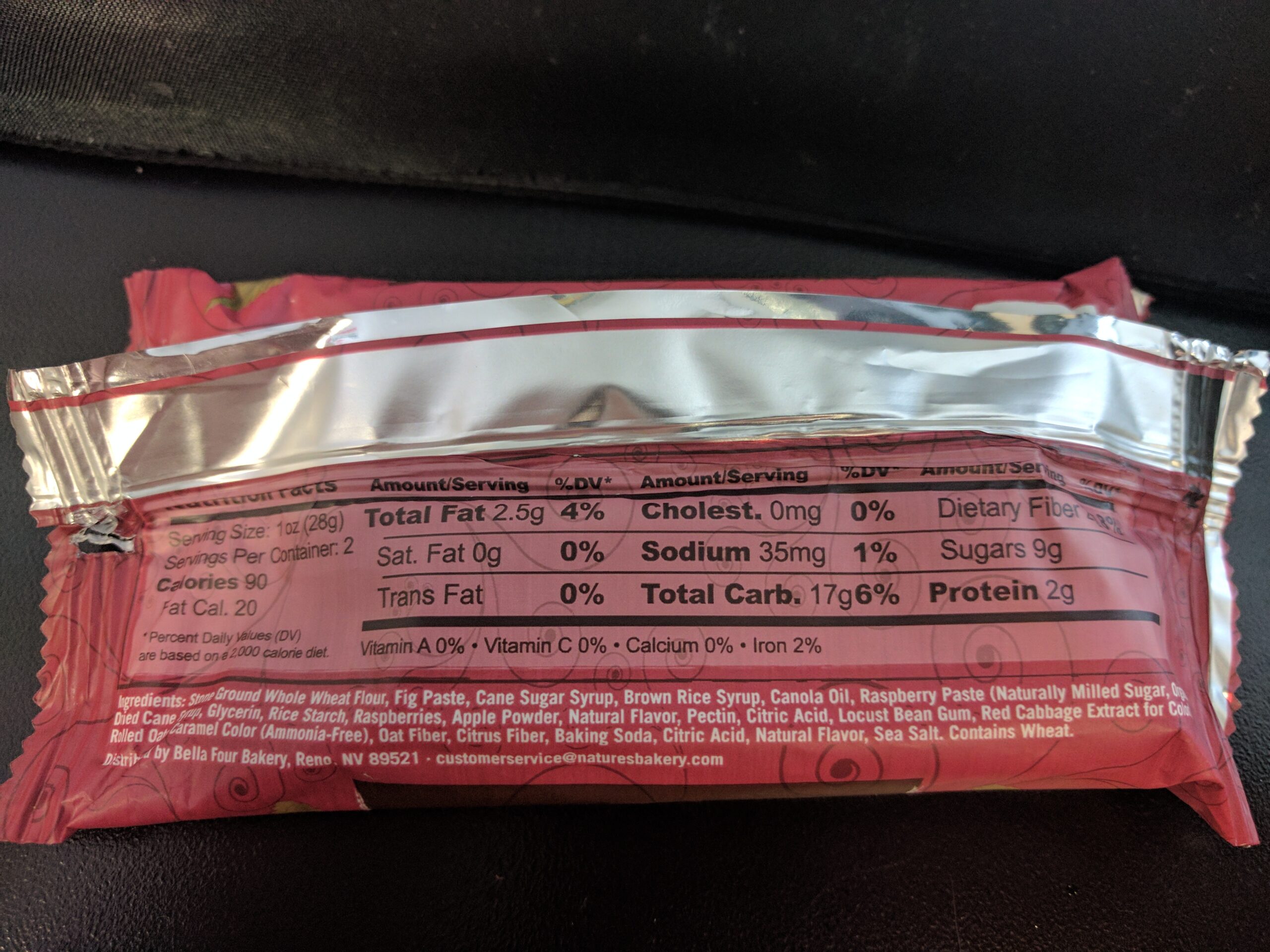
This is a no-added-sugar diet. This is not a no- or low-carb diet. The rules are simple here.
No foods that contain added sugars. Foods that contain naturally occurring sugar, fruits and vegetables, and ones that do not contain added sugar are welcome, even if they are carb-rich like bread, potatoes, and brown rice. Of course, this also means no fake sugars like Splenda or Stevia.
It should go without saying, but I'll say it: No alcohol either!
This means reading every single food label and cooking most of my meals.
Just take a look at the above breakfast bar. This breakfast bar's life is a lie. It told me it was an "all natural" health food, but I found three different kinds of added sugar when I read the label. This breakfast bar betrayed me!
Hidden Sugars
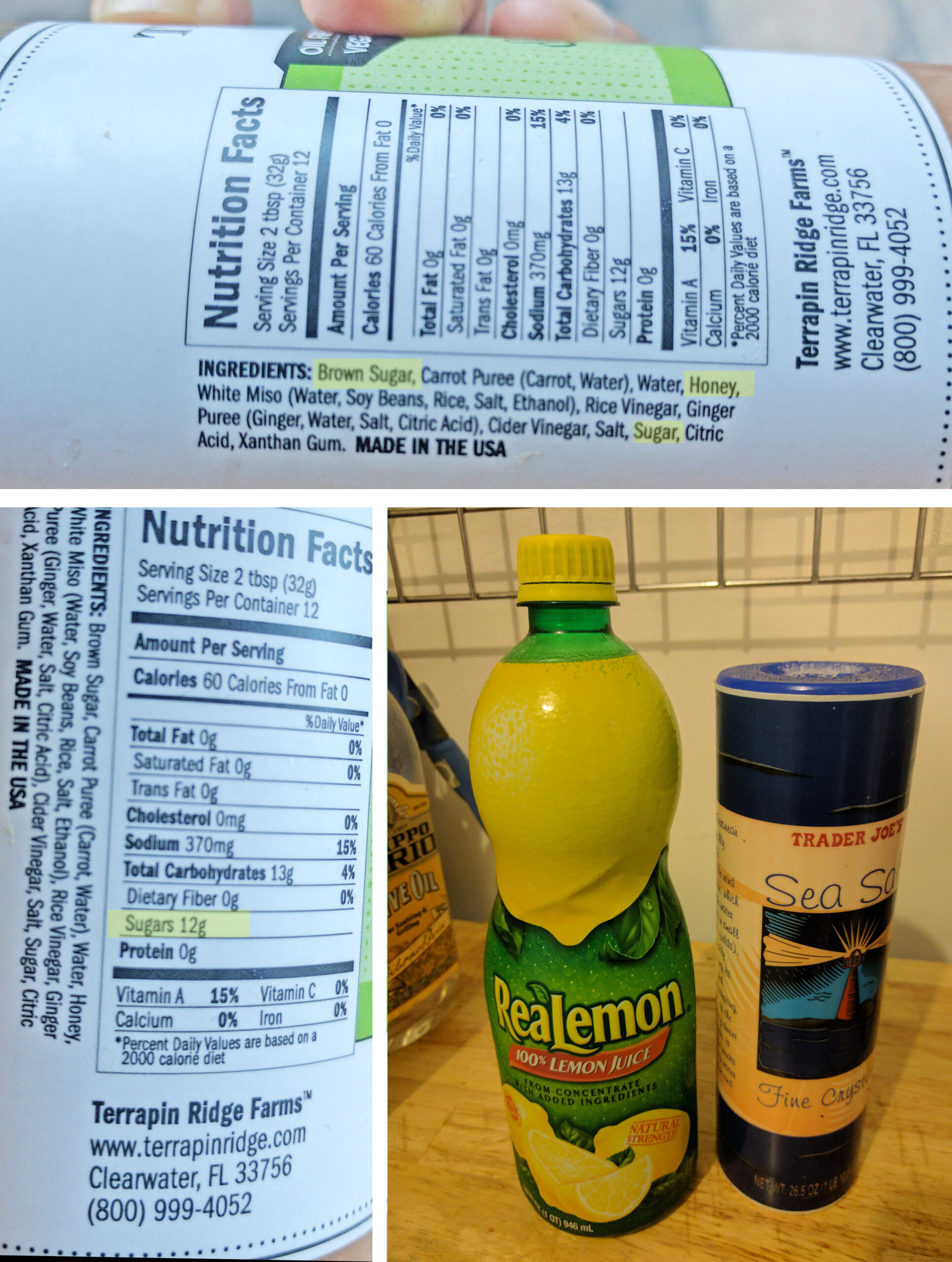
So, let's talk about hidden sugars. It is real easy to look at a label and see the word "sugar" and set it on fire because you're on a crazy sugar-free diet that made you go crazy (more on that later).
Brands have a way of labeling sugar so that you don't identify it as such. Here are a few sugar monikers, according to the Huffington Post:
"High-fructose corn syrup, corn sweetener, corn syrup, dextrose, fructose, fruit juice concentrates, glucose, invert sugar, lactose, maltose, malt syrup, raw sugar, sucrose, sugar syrup, cane crystals, cane sugar, crystalline fructose, evaporated cane juice, corn syrup solids."
One of the main culprits I found littered with lies and deception was my friendly neighborhood delicious carrot-ginger salad dressing. In fact, every salad dressing I encountered had a ton of sugar in it. In this one, the first ingredient is "brown sugar." When will the lies end?
I was able to swap my dressings with lemon juice and a sprinkle of a salt. Not the same, but it got the job done.
No-Sugar Diet: Days 1-10
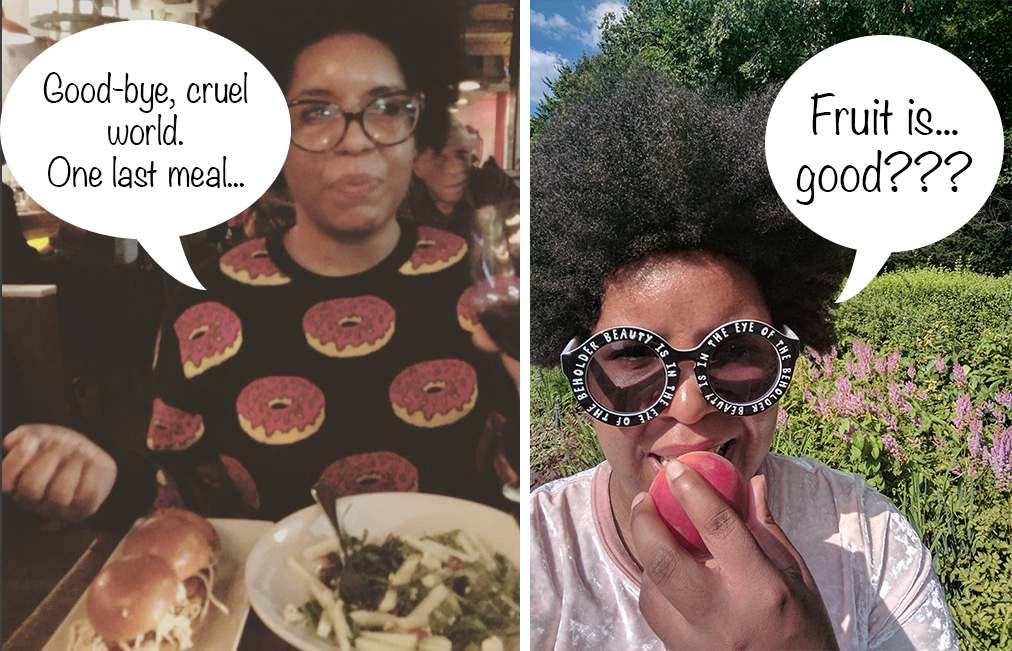
So, here we go — let's do this, kids.
Before I started, I obviously had one last meal just to torture myself with what I'd be missing. Enjoy this photo of me in a beautiful garden pretending a peach tastes remotely like chocolate cake on day one.
The first three days are the absolute hardest. Who knows if it's the withdrawal, though it certainly feels like it. All I want is sugar because I know I can't have it.
I start to get headaches the way I did when I quit caffeine for 21 days.
I start eating other kinds of carbs to satiate my need for added sugars. Baked sweet potatoes, peaches, watermelon, berry smoothies, and avocado toast on sprouted bread reign supreme during this time.
Not only that, I am irritable and crabby. I can't even have a glass of wine to decompress.
Around day five, something starts to happen. I am not as cognizant of the fact that I can't have sugar. I've swapped my breakfast bar for a handful of almonds and a piece of fruit. I drink my coffee black instead of with soy milk.
This isn't so bad, is it?
No-Sugar Diet: Days 11-20
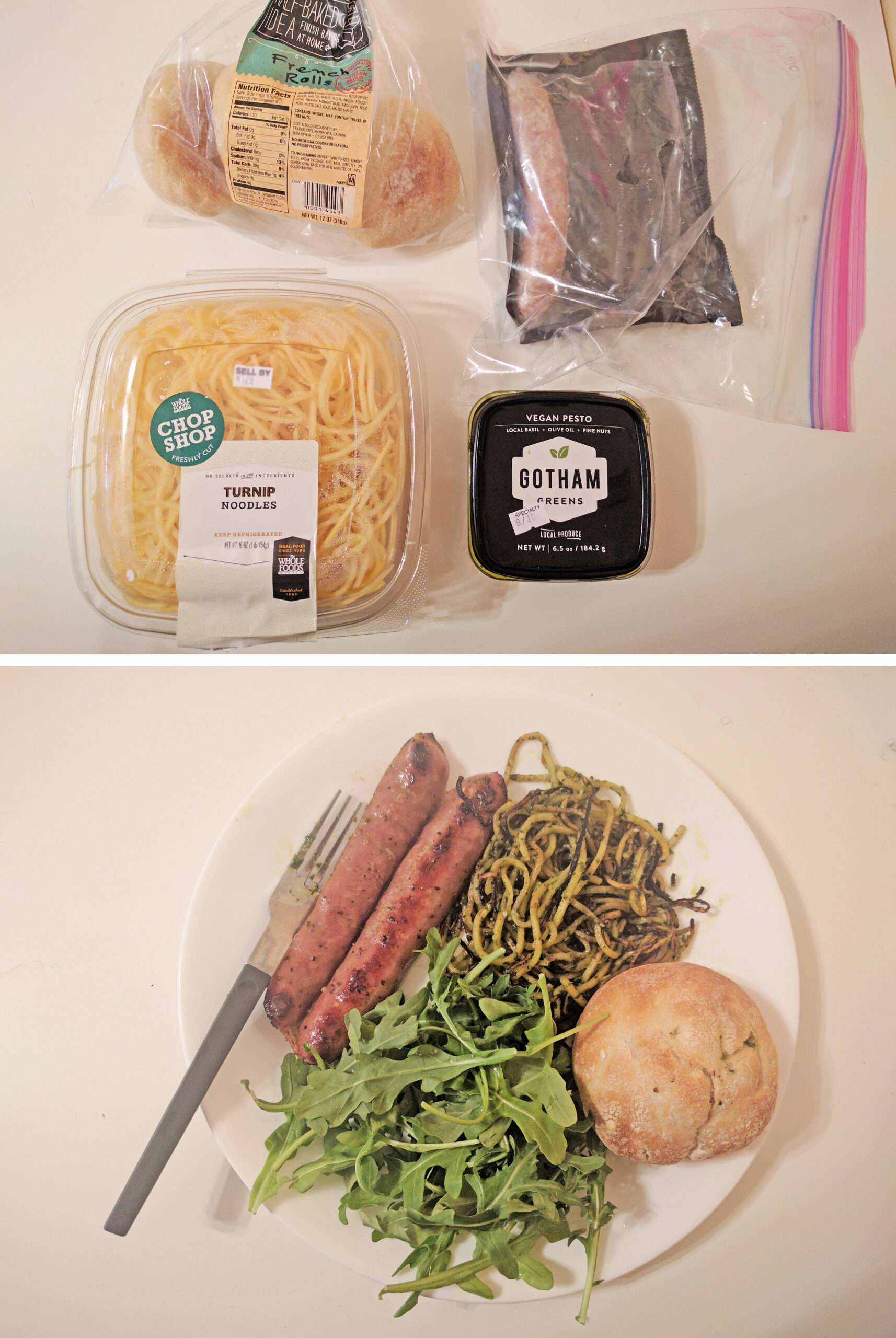
Snacks are the hardest part; meals are the easiest. As long as you cook at home, you can completely control what goes into your body.
Check out this little ditty I whipped up. Spiraled turnip "pasta" with vegan pesto, arugula salad with lemon juice and salt, and some Italian-style vegan sausage, all with a French roll on the side.
Days 11 through 20 are the easiest. I am in my groove. I am so proud of myself. I haven't cheated. I am a golden goddess. I can do anything. Sure, I still can't swim and am developing an irrational fear of birds for no reason, but the world is my oyster.
I have more energy, which means cooking my meals at home after work isn't an exhausting task. I sleep better now, which means I have more energy. I am caught in a loop of awesomeness. Look at me, mom, I'm doing it!
No-Sugar Diet: Days 21-30
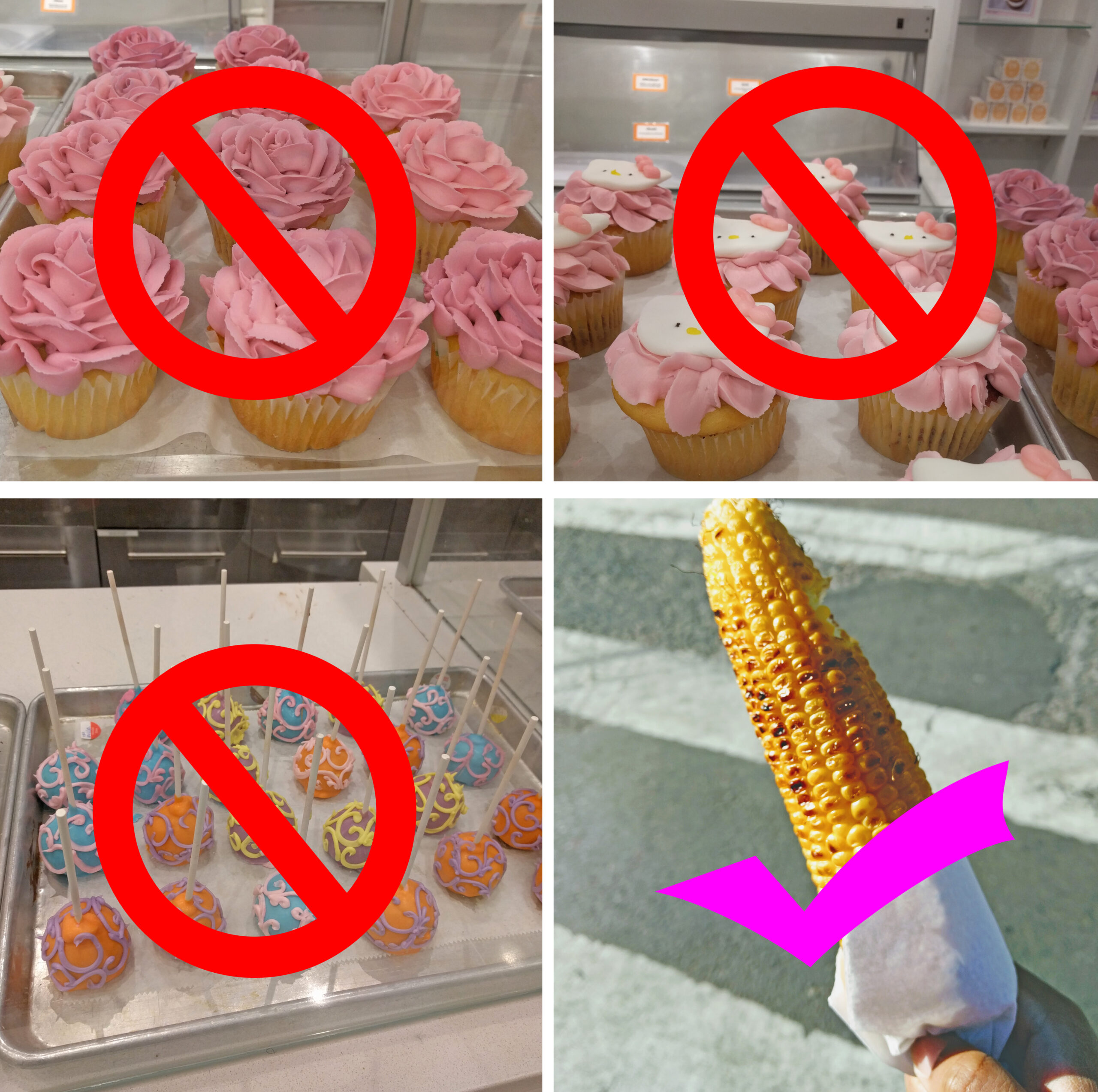
The final stretch. Here's the thing about this or any diet. It's really easy to keep to your diet when you don't have social obligations. It's real easy to keep to your diet when you're a single lady who doesn't have to make meal decisions with relatives or partners or kids. It's real easy to keep things up when you cancel most of your social outings because you know you're about to embark on a diet.
The ultimate test happened within the last 10 days. I reopened my social calendar. I figured, human interaction is probably for the best, right? I am weird enough as it is.
My friends are not on a no-sugar diet. In fact, they could care less that I am not eating sugar.
Of course, they want to get cupcakes, ice cream, and delicious comfort foods. Alas, I must be strong. While my friends eat all the cake, I eat… grilled corn from a street cart, chopped mango from a street cart, a bag of almonds from my purse, and slowly I die inside. This is my life now. A life without color, music, or happiness… but at least I have my health!
Side note for the biggest pro-tip of all: Those purse almonds sure come in handy. If you're not prepared for any sweet-craving circumstance, you'll probably end up cheating.
Day 30 is over. I did it. I don't even feel like immediately eating vegan chocolate ice cream. I am so proud. I have made history. No one has ever done this before (LOL)!
No-Sugar Diet: "Before" And "After" Results
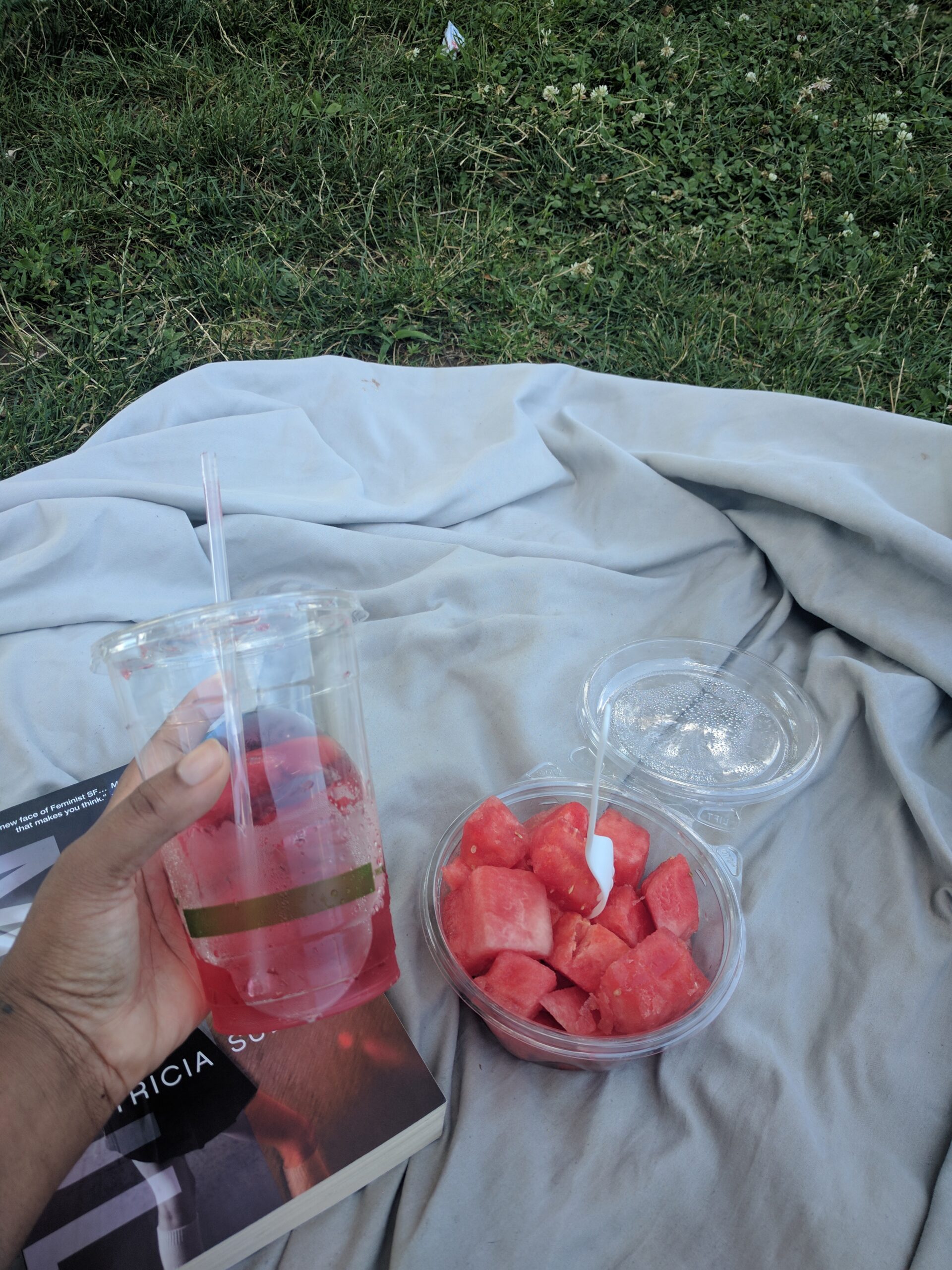
So, this detox changed my body, mind, and life in some pretty pleasant ways.
I kicked the sugar addiction I am 1,000% sure I had. I no longer feel like a slave to my cravings.
The greatest effect it had on me was in the most unexpected way: sleep. I drink a lot of coffee (not giving that up, dude, sorry!) so when you put sugar in the mix, it's easy to forget how hopped up I was on that stuff. Getting rid of added sugars allowed me to finally feel tired when I was supposed to be tired. Falling asleep was a breeze. I went from tossing and turning for one or two hours to dropping like a fly in 15 minutes or less.
This gave me more energy to do awesome things that are great for my mind and body, like cooking most of my meals at home and going out for long strolls in the amazing parks that surround my home.
Most of all, it taught me the importance of balance. There's no reason to fully give up sugar (unless a doctor tells you to). Now I know that a few pieces of watermelon and herbal iced tea will satisfy my cravings most of the time instead of an iced vanilla latte and a chocolate cookie (OK, fine, several chocolate cookies).
But I know the question everyone had: Did I lose weight? I didn't do this to lose weight, but I did drop three pounds. Though it's probably water weight, it ain't too shabby!
Does A No-Sugar Diet Work?
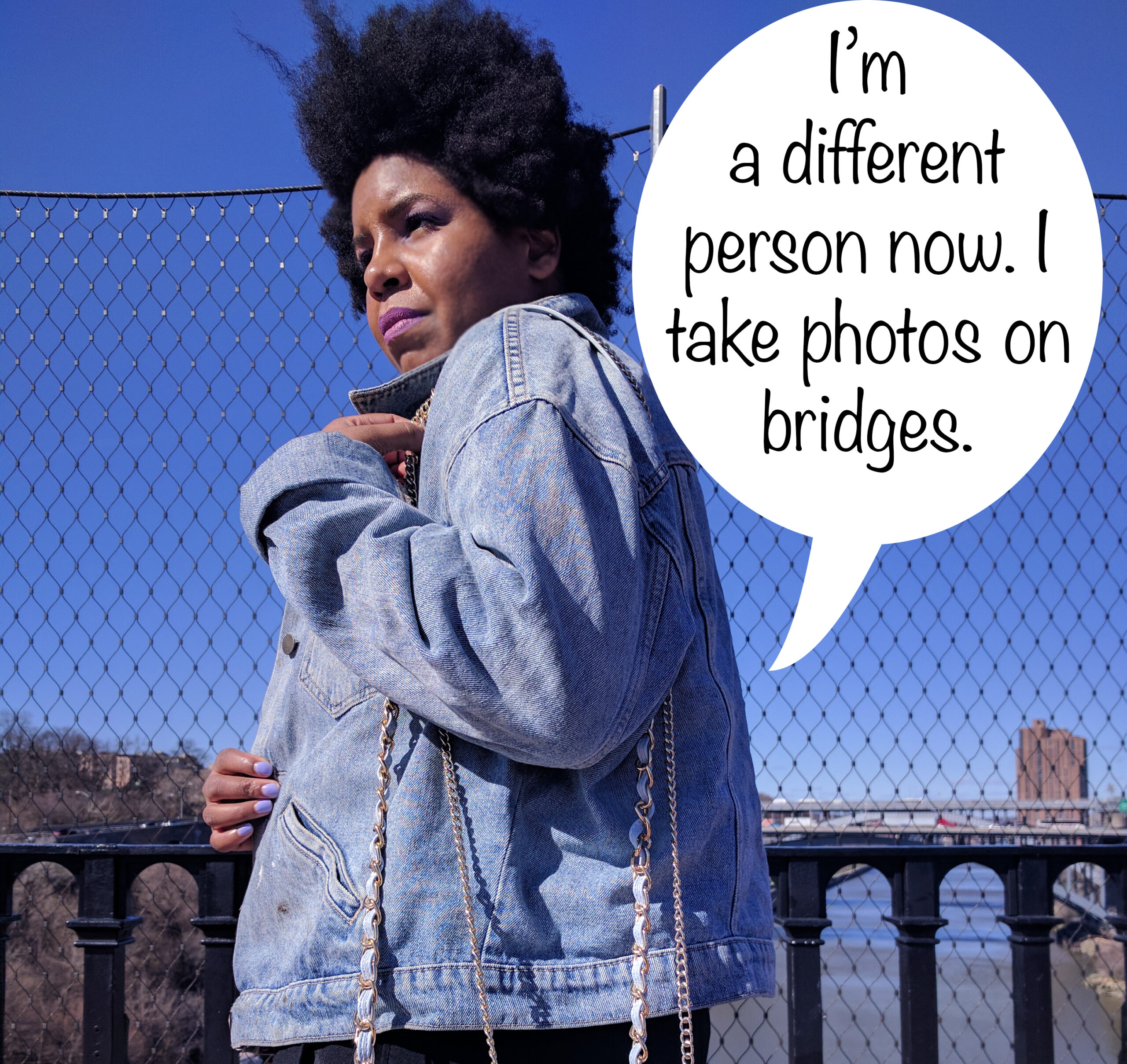
So, does a no-sugar diet really work? It really depends on your intentions. If losing weight is your goal, then I would say cutting out added sugar isn't going to be enough.
If you want to improve your cardiovascular health in the long term, then yes, it will work.
If you want to kick your sugar addiction in the behind, then yes, it will work.
If you want more energy and possibly improved sleep, then yes, it will work.
If you want to enter your chrysalis a mere caterpillar, then emerge a beautiful butterfly who is no longer beholden to cravings — yes, it will work.
Can I Keep Up A No-Sugar Diet In The Long Term?
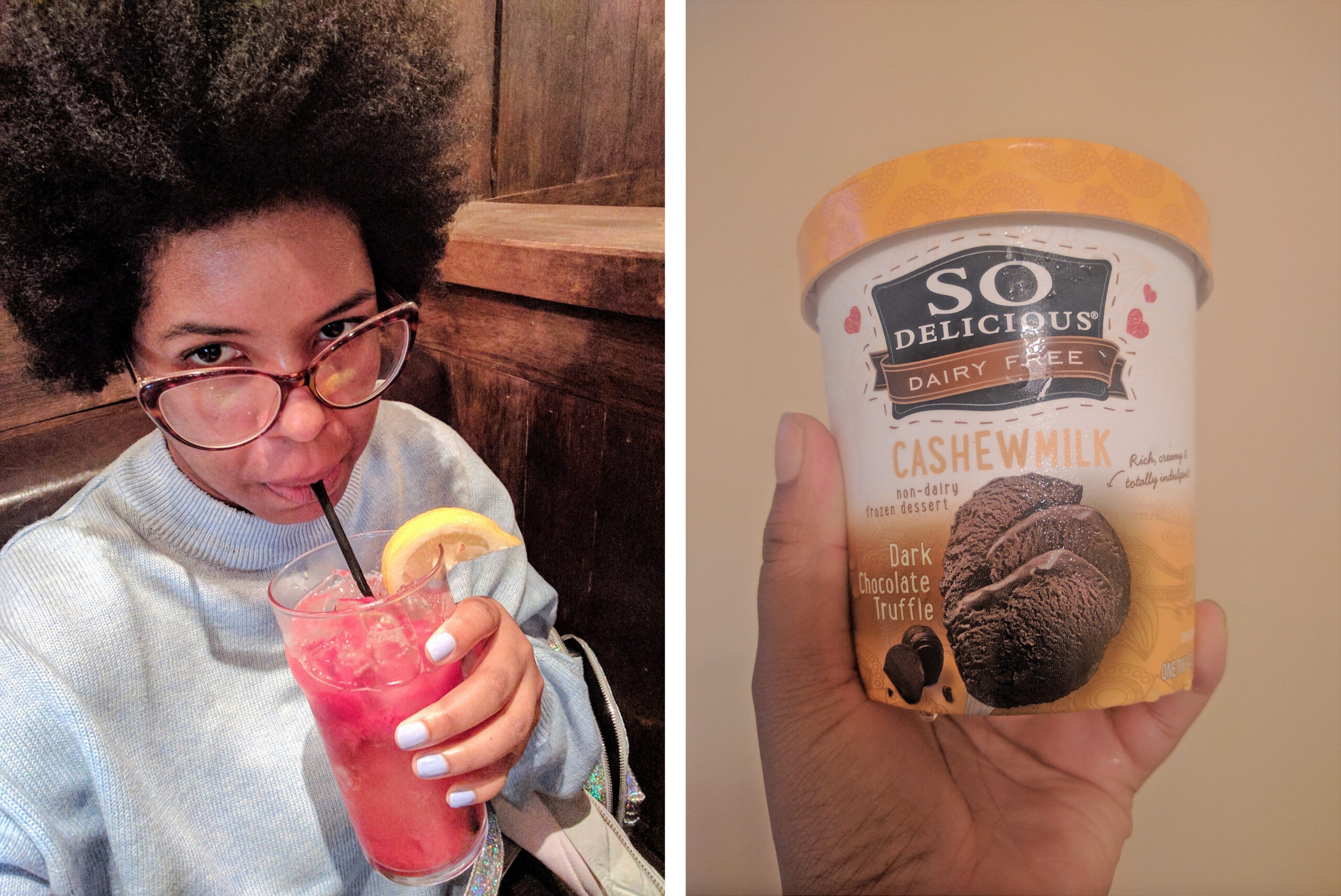
This isn't a permanent solution for me. As you can see, just a few days later I am enjoying a strawberry lemonade and snacking on a pint of chocolate truffle ice cream. I am weak.
Fortunately, my cravings are still not back. This detox is just that, a detox. It isn't necessary to completely quit added sugar.
It is necessary to live a happy life of moderation, where indulgences are just that: indulgences, meaning they happen every once in a while and not every day between meals.
I learned a lot on this spiritual journey of sugar deprivation. I am basically as important a historical figure as Abraham Lincoln and Cher.
Please SHARE this story if you're thinking about giving up added sugars, and let us know how you do!

